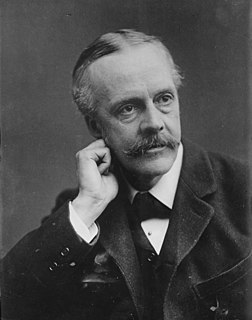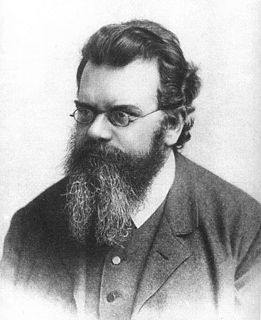Top 136 Kant Quotes & Sayings - Page 2
Explore popular Kant quotes.
Last updated on April 14, 2025.
Popular religion since the time of Kant and Fichte has gone in a direction they tried to prevent and that has been disastrous for the humanity both of believers and of the rest of us. Look at the role of religion in Republican presidential primaries if you need any confirmation of this last statement.
In fact, if you read what Kant has to say about feeling, desire and emotion, you see that he is not at all hostile to these. He is suspicious of them insofar as they represent the corruption of social life (here he follows Rousseau), but he also thinks a variety of feelings (including respect and love of humanity) arise directly from reason - there is, in other words, no daylight between the heart and the head regarding such feelings.
As long as I'm dealing in honesty, I may as well admit that I have been more influenced (as a person) by my childhood readings of Tolkien and Lewis than I have been by any philosophers I read in college and grad school. The events and characters in Narnia and Middle Earth shaped my ideals, my dreams, my goals. Kant just annoyed me.
I hate ideologies of all kinds, so I avoid jargon. I've done enough philosophy to know that some specialized terms are really needed. I don't complain when Kant does it. Or when Aristotle introduces all kinds of new words; he needed them. But these other people [modern philosophers] are just obfuscating. It just makes me annoyed.
Kant ... was also quite aware that "the urgent need" of reason is both different from and "more than mere quest and desire for knowledge." Hence, the distinguishing of the two faculties, reason and intellect, coincides with a distinction between two altogether different mental activities, thinking and knowing.
If the ability to tell right from wrong should turn out to have anything to do with the ability to think, then we must be able to "demand" its exercise from every sane person, no matter how erudite or ignorant, intelligent or stupid, he may happen to be. Kant in this respect almost alone among the philosophers was much bothered by the common opinion that philosophy is only for the few, precisely because of its moral implications.
From the beginning, there has been a tension in the reception of the Kantian idea of autonomy. If you emphasize the 'nomos' (the law), then you get one picture: the objectivity of ethics. If you emphasize the 'autos' - the self - you get the idea that we make the law. Kant never hesitated in his choice between the two emphases. He emphasizes the nomos (the universal and objective validity of the law).
Nowadays, to say that we are clever animals is not to say something philosophical and pessimistic but something political and hopeful - namely, if we can work together, we can make ourselves into whatever we are clever and courageous enough to imagine ourselves becoming. This is to set aside Kant's question "What is man?" and to substitute the question "What sort of world can we prepare for our great grandchildren?
Protestantism, of course, is much more explicitly divided into different traditions - the Pentecostals, the Anglicans. But there is the main tradition of Protestantism that comes out of the Reformation and that produced people like Kant and Hegel and so on, who are not normally thought of as being people writing in a theological tradition, although Hegel, of course, wrote theology his whole life.
I am a humanist because I think humanity can, with constant moral guidance, create reasonably decent societies. I think that young people who want to understand the world can profit from the works of Plato and Socrates, the behaviour of the three Thomases, Aquinas, More and Jefferson - the austere analyses of Immanuel Kant and the political leadership of Abraham Lincoln and Franklin Roosevelt.
Moral theory develops from the divine command theory of medieval Christian philosophy, mixed up with a bit of ancient pagan virtue theory, to the purely secular moral sentiment and interpersonal reaction theories of Smith and Hume, to Kant's attempt to restore command theory but with something supersensible in the individual rather than God as the source of authority.
Now the good of political life is a great political good. It is not a secular good specified by a comprehensive doctrine like those of Kant or Mill. You could characterize this political good as the good of free and equal citizens recognizing the duty of civility to one another: the duty to give citizens public reasons for one's political actions.
I use music as something from which I obtain some form of - I hate to use the word spiritual - guidance, an awareness of something more than the day-to-day or the petty. I am not reading Emanuel Kant to try to embark on a task of seeing if I can understand myself, what the aesthetic experience is. But I wholeheartedly believe in it, even though I think not too many do nowadays.
At the beginning of the project, I wasn't certain that I could come up with an engaging storyline and cast of characters in this world, so I had a strong bias toward actually writing, and worrying about research later. In other words, I was afraid that I'd devote a year or two of my life to grinding through Kant and Husserl, then discover that there simply was no novel to be written here.
So, when on one side you hoist in Locke's head, you go over that way; but now, on the other side, hoist in Kant's and you come back again; but in very poor plight. Thus, some minds for ever keep trimming boat. Oh, ye foolish! throw all these thunder-heads overboard, and then you will float light and right.
Don't Shoot is a work of moral philosophy that reads like a crime novel - Immanuel Kant meets Joseph Wambaugh. It's a fascinating, inspiring, and wonderfully well written story of one man's quest to solve a problem no one thought could be solved: the scourge of inner city gang violence This is a vitally important work that has the potential to usher in a new era in policing.
Kant's description of most ethical duties reads more like a description of moral virtues and vices. Once we see this, we see that Kantian ethics is indeed a kind of virtue ethics, and that it does not "divide the heart from the head" (to anticipate one of your later questions) but instead recognizes the deep truth that reason and emotion are not opposites.
It's as if, for Schopenhauer and perhaps Kant, the mind is there up and running, equipped with its categories and concepts that it then projects or smears, as it were, over what impinges upon it from the outside. This is not the image you find in, for example, Chuang Tzu: minds and nature are inseparably fused in an ever-changing whole of experience that, so to speak, constantly wells up from an indescribable source in a process that Daoists call 'the way' or 'the course'.
To go straight to the deepest depth, I went for Hegel; what unclear thoughtless flow of words I was to find there! My unlucky star led me from Hegel to Schopenhauer . . . Even in Kant there were many things that I could grasp so little that given his general acuity of mind I almost suspected that he was pulling the reader's leg or was even an imposter.






































